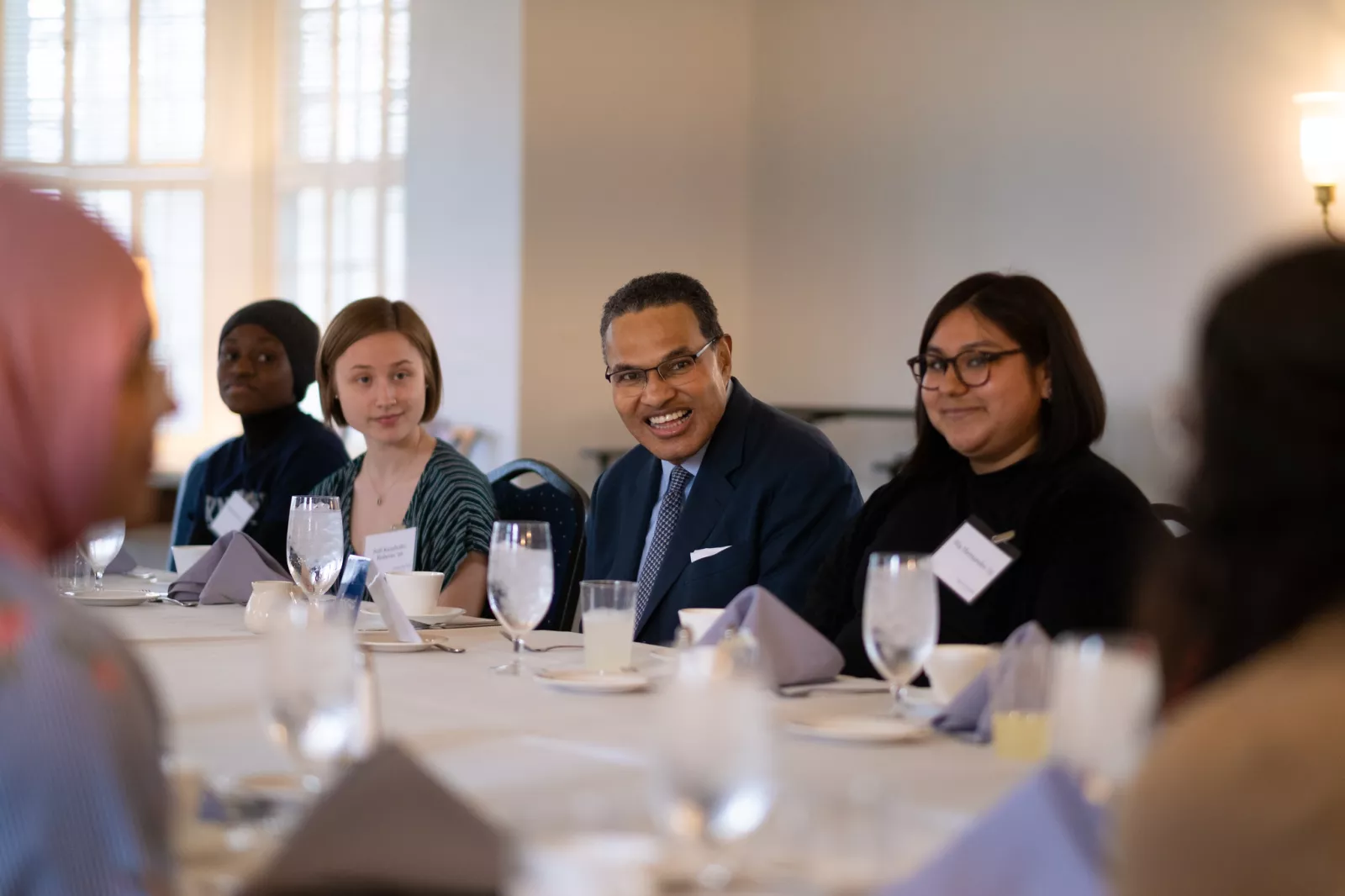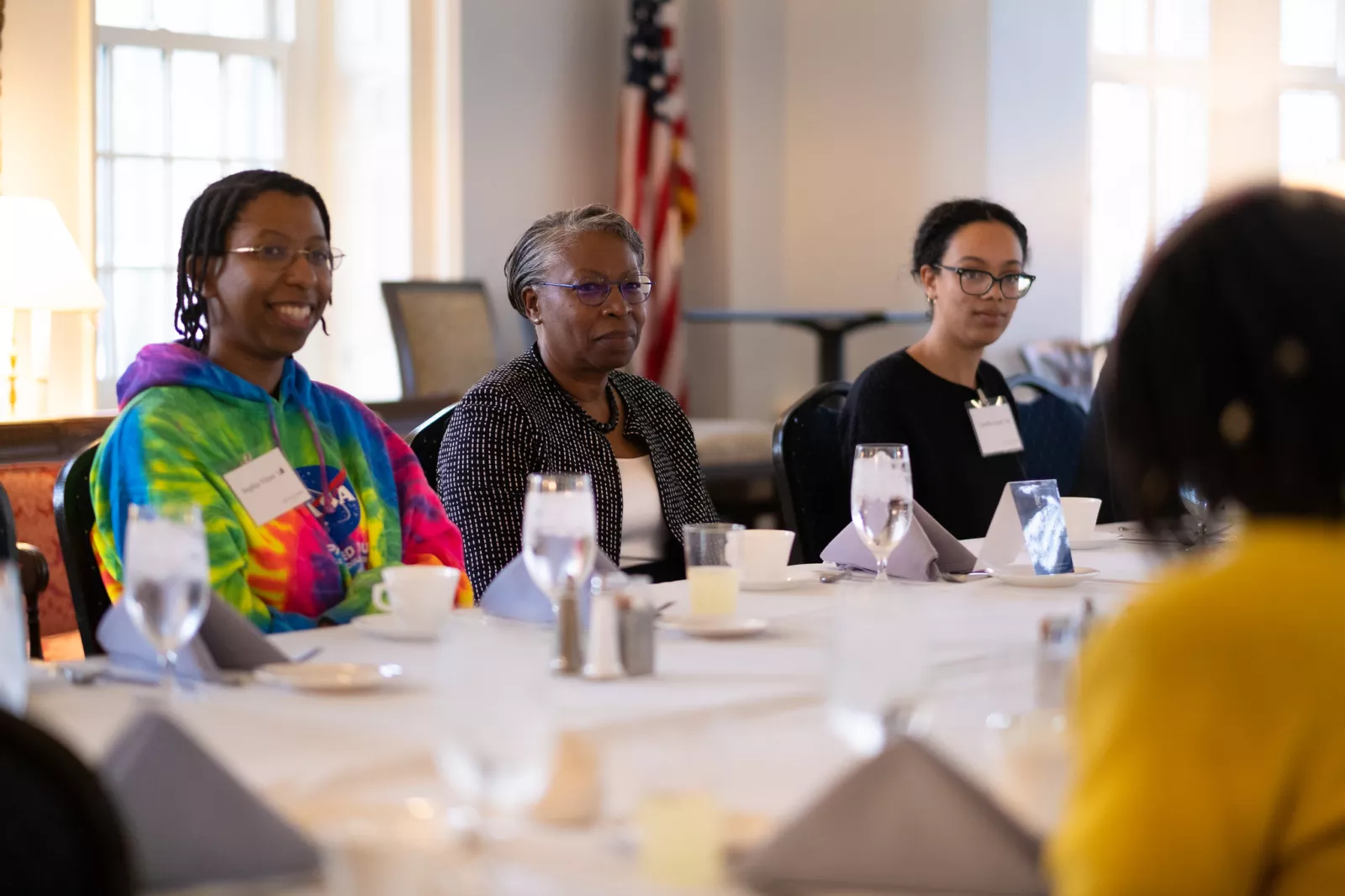Among the members of the class of 2027 will be the third group of students to take part in the College’s Science, Technology, Engineering and Math in the Liberal Arts (STEMLA) program.
STEMLA was launched in the summer of 2021 and is a free interdisciplinary college-transition and mentorship program designed for limited income undergraduate students that have a stated interest in STEM.
The fellows, who are invited to apply if they meet eligibility requirements, spend four weeks on campus during the summer prior to their first year. During that time, they receive a stipend and participate in three courses for which they receive 1.5 credits. In addition to Quantitative Reasoning in STEM, fellows this year will take courses focused on epidemics.
Professor Kalala Ngalamulume, who specializes in the history of health and disease in West Africa will teach one course and Jen Skirkanich and Michelle Wien from Biology will co-teach the other.
One of the key focuses of the program is to help students understand the breadth of career options available to them, says Skirkanich, who is the STEMLA faculty director. “We like to use the lantern metaphor—the paths are there but we need to illuminate them for students. We try to understand how students’ interest in science has developed and how we can help them build upon that. It’s a journey we want to take together with our students.”
"The STEMLA program has been helpful in my exploration of various career paths, primarily by creating a space where looking beyond my time at Bryn Mawr is encouraged," says current fellow Leila N'Diaye '25. "The program required a Scientific Thinking course, which focused on science as a career, and encouraged exploration of different career fields. My greatest takeaways from that class were connections I made with scientists I admired in my field; I connected with a scientist who was in Hong Kong at the time, and now I work in her lab."
Among the other ways the STEMLA program helps students with career exploration is through spending time with outside speakers who come to campus.
Last month, Freeman Hrabowski and Tuajuanda Jordan, two national leaders in transforming STEM education and student success, came to campus for an event and then had dinner with a select number of students, including several STEMLA fellows and Posse students.
“The talk shed light on how science continues to be a field where women, first generation, and low-income students are underrepresented,” says Sarabjit Dhillon '26. “I am grateful to have had a space that focused on supporting students of color interested in science and technology at predominantly white undergraduate institutions, and to be part of the STEMLA community, which fosters excellence and provides endless support to fellows.”
Mentorship is a key feature of the STEMLA program, and students take the summer to build relationships with different faculty members. The STEMLA faculty mentor program was carefully crafted to provide students with a faculty mentor they can work with throughout their Bryn Mawr undergraduate studies. Professors in the program go through training to learn about inclusive advising, meet with each other at least once a semester to discuss mentoring in the sciences, and share best practices to grow as mentors. In their senior years, fellows will become mentors themselves to younger students in the program.
"I was paired with Katherine Marenco, who is a paleontologist. Due to my meetings with her, and some classes I took, I began to explore geology as a career possibility, which I was not planning to do when I first enrolled," says N'Diaye.
Skirkanich and STEMLA coordinator Kelsey Obringer continue to build and improve the program's mentorship efforts. This fall they’re working with the Career & Civic Engagement Office and representatives from every STEM department on improving the Career Faculty Mentorship Program.
“Faculty want to provide mentorship and help students navigate career pathways available to them both inside and outside of academia," says Skirkanich. "Our hope is to work with, and draw on the expertise of, the Career & Civic Engagement staff and to better integrate our efforts to provide the best mentorship and advice possible.”
Additional supports and opportunities for STEMLA fellows include funded opportunities for lab assistant positions, attendance at conferences, GRE test preparation, and research programs while at Bryn Mawr.
To learn more about STEMLA and eligibility to become a fellow, visit their webpage.

